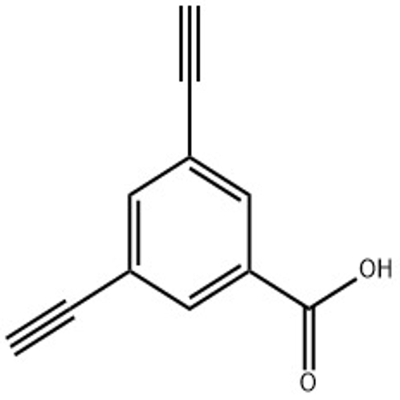-
Categories
-
Pharmaceutical Intermediates
-
Active Pharmaceutical Ingredients
-
Food Additives
- Industrial Coatings
- Agrochemicals
- Dyes and Pigments
- Surfactant
- Flavors and Fragrances
- Chemical Reagents
- Catalyst and Auxiliary
- Natural Products
- Inorganic Chemistry
-
Organic Chemistry
-
Biochemical Engineering
- Analytical Chemistry
-
Cosmetic Ingredient
- Water Treatment Chemical
-
Pharmaceutical Intermediates
Promotion
ECHEMI Mall
Wholesale
Weekly Price
Exhibition
News
-
Trade Service
Lithium 2-thienylcycanoacetate is an important compound in the field of chemistry, particularly in the chemical industry.
It is widely used as a catalyst in various chemical reactions and as a raw material in the production of various chemicals.
In this article, we will discuss the synthetic routes of lithium 2-thienylcycanoacetate and its importance in the chemical industry.
Synthetic Route 1: via Thioketal Synthesis
The first synthetic route of lithium 2-thienylcycanoacetate is via thioketal synthesis.
In this route, lithium 2-mercaptoacetate and thiophenecarboxaldehyde are reacted in the presence of a base, such as sodium hydroxide, to form lithium 2-thienylcycanoacetate.
The reaction takes place in a solvent, such as ethanol, and the product is purified by recrystallization in a suitable solvent, such as hexane or benzene.
Synthetic Route 2: via Nitrile Synthesis
The second synthetic route of lithium 2-thienylcycanoacetate is via nitrile synthesis.
In this route, lithium cyanide and thiophenol are reacted in the presence of a solvent, such as acetonitrile or benzonitrile, to form lithium 2-thienylcycanoacetate.
The product is then purified by recrystallization in a suitable solvent, such as hexane or benzene.
Synthetic Route 3: via Acetylation
The third synthetic route of lithium 2-thienylcycanoacetate is via acetylation.
In this route, lithium thiocyanate is treated with an excess of acetyl chloride in the presence of a solvent, such as benzene or toluene, to form lithium 2-thienylcycanoacetate.
The product is then purified by recrystallization in a suitable solvent, such as hexane or benzene.
Importance of Lithium 2-Thienylcycanoacetate in the Chemical Industry
Lithium 2-thienylcycanoacetate is an important compound in the chemical industry, and it has a wide range of applications in various fields.
Some of the applications of lithium 2-thienylcycanoacetate are as follows:
- Catalyst: Lithium 2-thienylcycanoacetate is used as a catalyst in various chemical reactions, such as the polymerization of vinyl monomers, the formation of polyesters, and the synthesis of heterocyclic compounds.
- Pharmaceuticals: Lithium 2-thienylcycanoacetate is used as an intermediate in the production of various pharmaceuticals, such as antihypertensive agents, antipsychotic drugs, and mood stabilizers.
- Agrochemicals: Lithium 2-thienylcycanoacetate is used as a raw material in the production of various agrochemicals, such as herbicides, insecticides, and fungicides.
- Materials: Lithium 2-thienylcycanoacetate is used in the production of various materials, such as plastics, textiles, and paper.
In conclusion, lithium 2-thienylcycanoacetate is an important compound in the chemical industry, and it has a wide range of applications in various fields.
The synthetic routes of lithium 2-thienylcycanoacetate vary, and they include thioketal synthesis, nitrile synthesis, and acetylation.
The compound is used as a catalyst in







